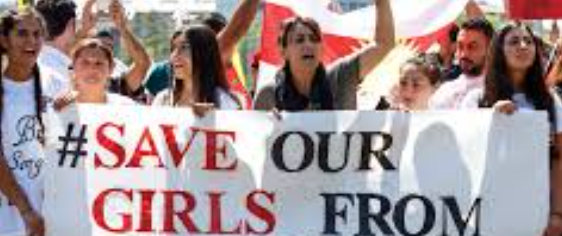The situation for women in Belarus is dire, and it cannot be understood without considering the broader political climate of repression, violence, and authoritarian control.
The state’s systemic abuse of women is embedded within the patriarchal framework of Belarusian society, which perpetuates gender inequality and enforces specific forms of oppression against women. This article aims to explore the multifaceted repression women face in Belarus, from the physical abuse and degradation in prisons to societal structures that marginalize their rights and participation.
Patriarchal Society and Gendered Repression
The root of women’s oppression in Belarus lies in its deeply patriarchal society. This societal structure devalues women and positions them as lesser than men in both public and private spheres. The government capitalizes on this deeply ingrained gender bias, which manifests in various forms of violence, humiliation, and state-sanctioned repression. Women are particularly vulnerable to these gendered practices, which are often less visible than the repression faced by men. The state’s use of gender stereotypes, combined with a complete disregard for women’s autonomy and dignity, allows the regime to effectively control, silence, and neutralize resistance from female activists, human rights defenders, and ordinary women alike.
Gender-Specific Repression in Prisons
One of the most disturbing aspects of repression in Belarus is the treatment of women in prisons. Women prisoners are subject to a range of gender-specific forms of abuse that aim not only to punish but also to humiliate and degrade. For instance, one of the most common practices in Belarusian prisons is the denial of basic hygiene products, particularly during menstruation. Women prisoners are often denied showers or the ability to change their clothes, and sometimes their clothes are intentionally ruined by guards, as seen in a case where a political prisoner’s clothing was doused with chlorine under the pretext of preventing COVID-19. This kind of deprivation is a form of torture, forcing women to live in unsanitary and degrading conditions.
Moreover, women prisoners are subjected to forced strip searches and humiliating medical examinations. One example includes a woman being subjected to a medical examination while menstruating, without any assistance, leaving her in a humiliating and dehumanizing situation. These acts of abuse are designed not only to punish but to break the spirit of resistance that these women hold.
Another particularly cruel form of repression is the practice of shaving women’s heads in prison. Unlike men, whose hair may not carry the same cultural or social significance, women’s hair is closely tied to their identity and femininity. Shaving a woman’s head in Belarusian prisons is thus not just an act of physical control; it is a gendered form of humiliation that strips the woman of a key part of her self-image and reinforces the stigma attached to female prisoners.
Abandonment and Isolation of Women Prisoners
A significant form of gendered repression is the abandonment and isolation that many women experience while incarcerated. This is especially prevalent among political prisoners, who often face the additional psychological toll of being abandoned by their families. Husbands frequently refuse to support their wives during their imprisonment, especially in cases of political dissent, leaving women to endure the brutality of the prison system alone. This social and familial isolation makes it even harder for women to survive under the conditions imposed by the regime.
The lack of support for female prisoners is particularly severe in cases involving young girls. For example, the “Girls 328” campaign run by the organization “Our House” highlights the plight of young girls who are imprisoned for minor, non-violent drug offenses. These girls are often sentenced to long prison terms and are left without the support of their families. While male prisoners often receive familial support during legal proceedings, girls in Belarus are often abandoned, even when their charges are politically motivated or fabricated.
Gender-Based Repression: Forced Child Removals and Punitive Psychiatry
A particularly insidious form of gendered repression in Belarus is the removal of children from the families of women who are human rights defenders, political dissidents, or journalists. During the period from August 2020 to January 2021, over 1,200 children were at risk of being taken from their mothers simply because the women were involved in activism or had spoken out against the regime. This practice was part of the broader strategy to silence and punish women for their political engagement. My own family was targeted in 2013, when the regime attempted to take my month-old son, Sviatoslav, from us, accusing me of being an unfit mother for my activism.
Furthermore, the regime’s use of punitive psychiatry is another example of how women are specifically targeted. Women, especially those from rural areas, who oppose local corruption or resist the regime’s policies, find themselves at risk of being involuntarily committed to psychiatric hospitals. These women are often drugged and isolated, with little recourse to justice or support. This practice disproportionately affects women, making them vulnerable to both physical and psychological violence.
Economic Pressures and Sexual Harassment
Economic pressure is another tool used by the regime to suppress women’s activism. Women who oppose the regime often face job loss, financial penalties, and the guilt of seeing their families suffer because of their political beliefs. This form of coercion is particularly effective, as it places immense pressure on women to abandon their activism in order to protect their families. Additionally, many women in Belarus, particularly those in activism, face sexual harassment and violence, including groping and threats of sexual violence from law enforcement officers. These instances often go unreported due to the stigma surrounding sexual harassment and the lack of support for victims.
The Plight of Wives of Political Prisoners
The wives of political prisoners face a unique form of gendered repression. These women are often left to bear the economic burden of supporting their families while their husbands languish in prison. They are responsible for sending parcels to their husbands, paying for rent, utilities, and even loans, while simultaneously being denied employment because of political discrimination. The Belarusian regime ensures that these women live in poverty, further isolating them from society and making their survival even more difficult. The broader Belarusian civil society often shows little solidarity with these women, leaving them to face their struggles alone.
Domestic Violence and the State’s Failure to Protect Women
Domestic violence is another issue that remains largely invisible in Belarus. The state fails to protect women from abuse, and in some cases, it exacerbates the situation. When women seek help from the police during violent incidents, they often face further victimization. Instead of protecting them, the police often remove children from the family, leaving the mother without support and punishing her for seeking assistance. This cruel cycle reinforces the state’s control over women’s bodies and lives, forcing them to remain in abusive situations without any hope of justice or protection.
State-Controlled Reproductive Rights and Public Participation
The Belarusian state’s control over women extends beyond domestic issues and into public and reproductive spheres. For example, women are required to submit a gynecological certificate to obtain a driver’s license, a requirement that is not imposed on men. This is a clear attempt by the state to control women’s bodies, even in the most basic aspects of their lives. Moreover, the regime continues to impose restrictions on women’s employment, with a list of professions banned for women. While the number of banned professions has decreased, this list still exists, and women continue to face legal and societal barriers in the workplace.
Conclusion: The Struggle for Women’s Rights in Belarus
The situation for women in Belarus is a heartbreaking and alarming one. The state’s oppression, rooted in a patriarchal structure, is designed not only to suppress women’s voices but also to break their spirits. From physical and sexual abuse to the removal of children and economic coercion, the regime employs a variety of tactics to control and marginalize women. Despite these challenges, women in Belarus continue to fight for their rights, often at great personal cost. The international community must support these women in their struggle for justice, dignity, and freedom, and help amplify their voices in the face of state-sanctioned violence and repression.
Olga Karach,
Belarus

Credits: Journal of European Security and Defense Issues Concordiam




